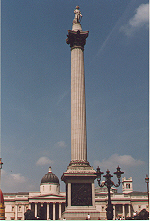
Nelson's Column
Charlie Nelson's Blog
Melbourne's long drought decoded
Melbourne’s annual rainfall since 1856 is shown in
Chart 1. Melbourne’s rainfall seems to have suffered an abrupt drop (of
21%) from 1997 and again (by 32%) from 2006, relative to the average from
1856 to 1996. Both of these reductions are statistically significant in the
sense that they were unlikely to have been just chance fluctuations (less
than one chance in a thousand). There have never been four consecutive
years with rainfall as low as that from 2006 to 2009. During that period,
rainfall averaged 448 mm compared with the 1856 to 1996 average of 660 mm.
The previous record low for four consecutive years was 516 mm during the
period 1912 to 1915.
Chart 1

In my last paper, written in August 2009 (available online at www.charlienelson.com/moonrain.pdf), I showed how the cycles in Melbourne’s rainfall matched the lunar node cycle. In addition to the lunar node cycle, I quantified the impact of the Indian Ocean Dipole. These two factors explain the onset of drought in 1997 and its continuation to 2005. But another factor has caused the intensification of the drought since 2006. I have now identified that factor.
My latest paper documents this research and provides a forecast for the next two decades. The good news is that the worst of the drought is probably over but the bad news is that there is the potential for another bad drought in the next 10 years.
My findings should lead to
improvements in both long term and short term rainfall forecasts for
Melbourne and southeastern Australia. They will also improve the
identification of periods of high bushfire risks.
This paper is available at the foreseechange online store at
www.foreseechange.com.au.
Charlie Nelson
July 2010
Update: January 2011
I am pleased to report that Melbourne had a wet 2010, receiving 776.7mm, well above the average of 648mm. It was the wettest year since 1996. My prediction that the worst of the drought was over was accurate!